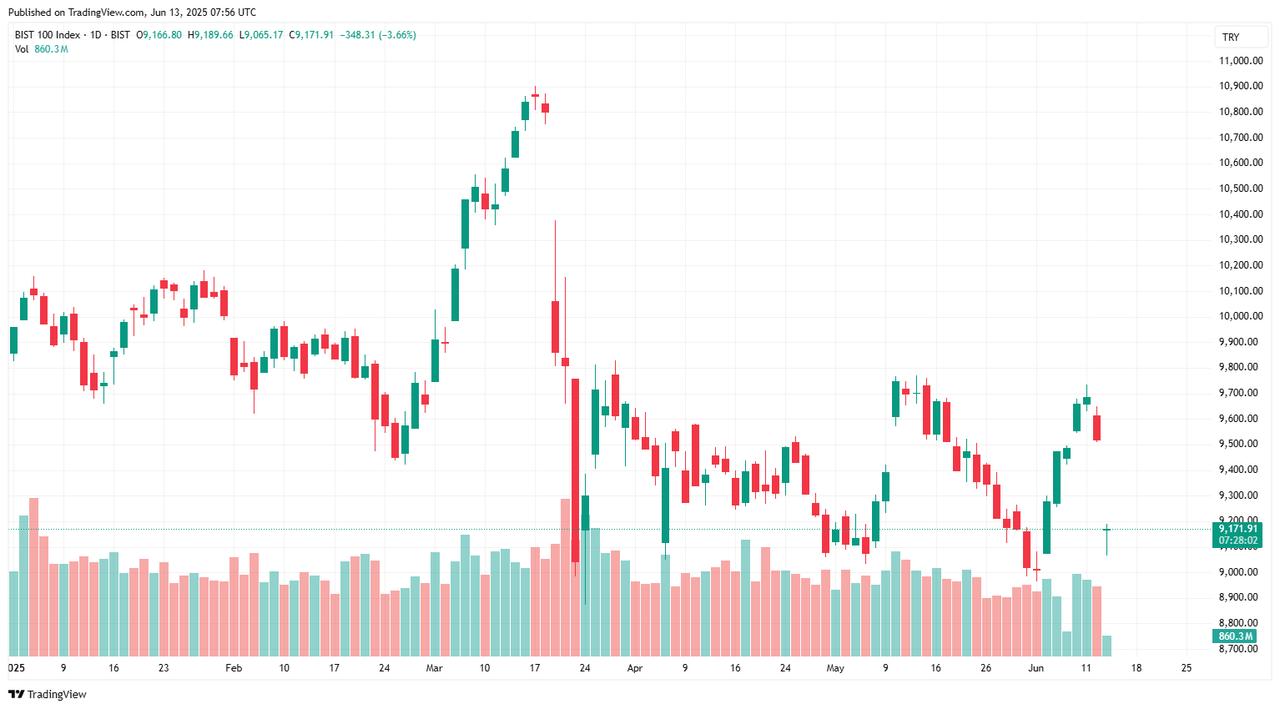
Borsa Istanbul, Türkiye's stock exchange, opened Friday’s session with a sharp 3.7% decline as Israel’s airstrikes on Iran weighed heavily on Turkish markets amid heightened regional uncertainty.
The sell-off followed the launch of Israel’s “Operation Rising Lion,” a military campaign targeting Iran’s nuclear program, which saw Israeli air forces strike multiple nuclear facilities and reportedly kill several top Iranian officials.
All sector indices opened in negative territory, with transportation stocks posting the steepest loss at 5.95%, followed by energy and industrials. Analysts noted that Middle East developments will remain a central concern for investors, especially given the potential for broader regional destabilization. Technically, they pointed to support levels at 9,100 and 9,000 for the BIST 100 index, with resistance seen at 9,200 and 9,300.

The Turkish derivatives market also reacted sharply, slumping over 4% to 10,254 points for June contracts in early trade. The move reflects a broader risk-off sentiment as investors brace for further geopolitical fallout.
Market weakness began a day earlier, with Borsa Istanbul’s BIST 100 already falling 1.71% on Thursday to close at 9,520.22 points. The day’s transaction volume stood at ₺93.4 billion ($2.37 billion). The derivatives market also lost over 2%, ending Thursday at 10,693 points, marking a sustained two-day rout.
Türkiye is particularly exposed to escalations in the Middle East due to its geographic proximity, extensive trade and energy ties with regional actors, and heavy reliance on imported oil and natural gas. The Strait of Hormuz—a critical chokepoint for global energy supply—is also a vital corridor for Türkiye’s energy security.
As a result, geopolitical shocks in the region tend to trigger sharper and more immediate reactions in Turkish financial markets compared to more diversified or geographically insulated economies. This sensitivity amplifies volatility across equities, currencies, and energy-sensitive sectors, as local investors tend to reposition portfolios rapidly in response to external shocks.
Moreover, the ongoing macroeconomic adjustment process in Türkiye, marked by rising interest rates, tight financial conditions, and efforts to attract foreign capital, makes the market particularly fragile to global risk repricing.